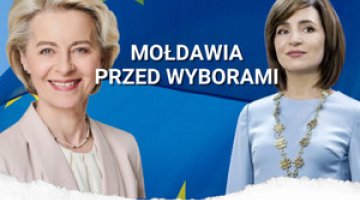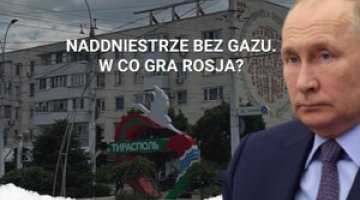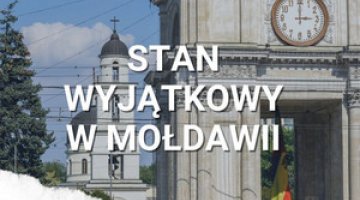Before the parliamentary elections in Moldova
On 30 November parliamentary elections will be held in Moldova. Available polls indicate a slight advantage for the pro-European forces over groups opting for rapprochement with Russia. The parties making up the current pro-European coalition (the Liberal Democratic Party (PLDM) chaired by the former Prime Minister Vlad Filat; the Democratic Party of Moldova (DPM) led by Marian Lupu and financed by one of the richest Moldovans, Vlad Plahotniuc; and the Liberal Reformist Party (PLR)) can count on around 18-20%, 15-17%, and 1% of the vote respectively. The pro-European Liberal Party (PL) headed by Mihai Ghimpu, which is not currently in the coalition, but was part of it until May 2013, has consistent support of around 7-10%. Three pro-Russian groups will also probably enter parliament: the Communists (PCRM), the Patria party, and the Socialists (PSRM), with support running at around 19-21%, 9-11% and 7-8% respectively. The elections are being held in a relatively stable economic situation, but also against a backdrop of increasing fear of possible Russian military intervention, which over 70% of the population are afraid of.
The result of the elections and the shape of the new government are not currently predictable. The most probable outcome would see the establishment of a pro-European coalition of the PLDM, the DPM and the liberals. It cannot be ruled out that the pro-Russian groups will obtain a majority, and in this case they will attempt to set up a joint government. The least likely, but still possible scenario is the creation of a coalition between the DPM and Communists. At the same time, there is a serious risk of social unrest inspired by pro-Russian groups breaking out, in the event of these groups failing to take power.
The Moldovan political scene before the election
Surveys conducted in recent months indicate a clear improvement in the ratings for the two main pro-European parties (the PLDM and the DPM), especially after a serious decline in support caused by the government’s crisis in the first half of 2013. The main reasons for the rise in both parties’ popularity include: an improvement of the coalition’s image, which has been achieved by calming the conflict between the parties, which although they still persist, are not exposed to the public; untainted politicians such as Prime Minister Iurie Leanca (who replaced Vlad Filat) and the speaker of parliament Igor Corman (who was appointed after Marian Lupu), coming to the fore; recent successes in the field of European integration, especially obtaining the right to visa-free entry into the Schengen area for Moldovan citizens holding biometric passports (as of 28 April); and the signing of an Association Agreement with the EU (27 June).
The only coalition party which has not seen a growth of support and is unlikely to enter the new parliament is the PLR, a group composed of members who during the political crisis of 2013 separated from the Liberals and called for the appointment of a new government. Both the Liberals and the PLR draw upon the same electorate, consisting of Moldovans who are pro-Romanian or even identify themselves as Romanian, who make up as much as 15% of the population. Those voters who traditionally vote for the Liberals, however, see the PLR as traitors and splitters.
At the same time, there has been a major change in the last few months on the pro-Russian side of the Moldovan political scene, which until recently occupied by the Communists under the former President Vladimir Voronin. The popularity of this group (which in late 2013 was supported by over a third of the voters) has dropped significantly in recent months. The drop in the PCRM’s ratings is primarily due to the following factors: an internal rift in the grouping, the result of a conflict between Voronin and a radically pro-Russian wing party led by the Communists’ former ideologist, Marek Tkachuk; the withdrawal of Russia’s support (both political and financial) for the PCRM; and the lack of a coherent campaign and a clear electoral message. The Communists’ electorate has been taken over by two pro-Russian groups: Patria, controlled by completely new player on the Moldovan political scene Renat Usatîi, a Moldovan businessman associated with Russia; and the PSRM, supported by Moscow and led by Igor Dodon.
Russia’s attitude towards the elections in Moldova
Until recently, Russia had vigorously supported the PCRM, counting that Moldova’s pro-European government would collapse and that the PCRM would take power in the country. Probably Moscow expected that the Communists would organise mass protests and force the government to resign after the Association Agreement was initialled with the EU in November 2013. Since none of these expectations were fulfilled, Russia withdrew its support for the PCRM, and in particular for Voronin (as being ineffective and unreliable), and began to publicly support the socialists. Russia supports the campaign of this openly pro-Russian and Kremlin-dependent party, and is intensively promoting its leader, Igor Dodon, via the Russian media (which are popular in Moldova), while discrediting both the pro-European parties and the very idea of European integration. An important element of Russian support for the PSRM was Dodon’s reception in Moscow by Vladimir Putin on 4 November, during the celebration of National Unity Day. During the visit, Russia guaranteed the Moldovan migrants residing illegally in Russia (who number around 220,000 according to Russian data) the right to go to Moldova during the election period, with the option of returning and legalising their residence. This measure is aimed at increasing the number of potential pro-Russian voters, who might otherwise be afraid to participate in the elections because of their irregular status in Russia.
On 18 November, in connection with Dodon’s meeting with the Russian deputy prime minister Dmitriy Rogozin, it was also announced that the embargo imposed by Russia on Moldovan alcohol, meat and fruit, among others, may be lifted. In this way, Russia is not only promoting the PSRM in the parliamentary elections, but also trying to withdraw from the ineffective policy of exerting pressure (through economic sanctions), to taking actions intended to improve its image and ‘buy off’ the Moldovan electorate. This political turnaround also includes a decision by Gazprom before the elections to extend its gas contract with Moldova (which was due to expire at the end of this year) for another year, and to lower the price of gas from US$380 to US$330 per 1000 m³.
At the same time Russia is preparing for a possible post-election destabilisation of the situation in Moldova. According to the Moldovan Prosecutor’s Office, paramilitary training for volunteers from Moldova (especially the traditionally pro-Russian regions of the country, such as the Gagauz autonomous region and Bâlți) has been organised in Russia this year, including in the vicinity of Rostov-on-Don, where they were taught skills useful in the work of sabotage. To counter this threat, the Moldovan ministry has in recent months regularly arrested persons suspected of trying to destabilise the situation and committing activities against the state.
Election forecasts
Currently, the most realistic post-election scenario seems to be a victory for the pro-European parties and a coalition consisting of the PLDM, the DPM and the Liberal Party. Although the Liberals’ leader Mihai Ghimpu remains officially in conflict with the other two groups (especially with Vlad Filat), he will probably willing to enter into a new coalition, on condition that he and his group obtain satisfactory positions. Without Ghimpu’s party it will be impossible to create a stable majority government. In this case, the new cabinet will probably be led once again by Iurie Leanca. Coalition talks on dividing up the posts may prove difficult, not only because of the liberals’ tough stance, but also because of the rivalry between the PLDM and the DPM, especially if the difference in votes between the two groups is relatively small. It is possible that in order to improve its negotiating position, the DPM will threaten to form a government with the Communists. Marian Lupu has not ruled out a coalition with the PCRM, but he has stressed the need for such an alliance to maintain a pro-European course.
It remains possible that the pro-Russian groups will succeed and try to create a coalition between the PCRM, the PSRM and Patria. However, a condition of its creation (which will probably be very difficult to meet) is likely to be Voronin’s resignation as leader, which Usatîi openly spoke of in October, and which Dodon would also favour. If these three parties gain a majority, pressure on the PCRM over Voronin’s departure may lead to further splits within the party.
At the same time, there is a serious risk that the situation in Moldova will be destabilised immediately after the parliamentary elections. In the event of the pro-Russian forces losing, we may primarily expect the election results to be contested (especially if there is only a small difference in the votes), as well as mass demonstrations or even lengthy protests both in Chisinau and in Gagauzia and Bâlți.





